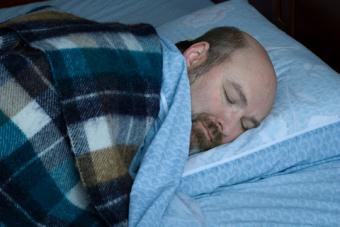
If you find yourself falling asleep at inappropriate times during the day, every day, you may wonder if you are suffering from narcolepsy. Narcolepsy is a chronic neurological disorder that causes overwhelming daytime drowsiness and intermittent sleep "episodes," or sleep attacks. While the onset of narcolepsy can happen at any age, it most commonly appears between the ages of fifteen and twenty-five. No matter your age, it is important to find out if you have this condition so you can get treatment.
What Causes Narcolepsy?
A mystifying sleep problem, scientists do not fully understand what causes narcolepsy. Narcolepsy is slightly more common in men than women and occurs in all racial and ethnicity groups. There are several possibilities that scientists are studying, but more research is needed to clarify the causes of this condition.
Chemical Changes
Research has discovered a possible link between the disorder and deficit of a chemical in the brain called hypocretin. Scientists do not understand fully what makes the brain make less of this protein.
Autoimmune Issues
Other researchers think that narcolepsy may be caused by an autoimmune condition where the immune system may attack the cells that make the chemical hypocretin. This also lowers the amount of this protein in the body.
Genetics
Different genes may play a role in the development of narcolepsy. Some researchers think that some of these genes control the neurochemicals that trigger sleep and awake cycles. Narcolepsy does tend to run in families.
What Are the Symptoms of Narcolepsy?
Symptoms of narcolepsy are often mistaken for other problems, such as depression, fatigue, fainting, and seizure disorders. If you are experiencing any of these symptoms, you should check with your doctor to discuss the possible presence of a sleep disorder.
Excessive Daytime Sleepiness
You may have narcolepsy if you experience excessive sleepiness that interferes with your activities on a daily basis, regardless of how well you have been sleeping at night. Signs of excessive daytime sleepiness include the following:
- Exhaustion
- Depression
- Memory difficulties
- Lack of energy
- Mental cloudiness
Sleep Paralysis
Everyone experiences paralysis at night while they are sleeping, but this temporary immobility should not occur once you wake up. If you are waking up still paralyzed for a period of time, this may be a sign of a larger problem. It is important to know, though, that sleep paralysis is fairly common and does not necessarily mean that you have narcolepsy.
Cataplexy
This is usually characterized by a sudden loss or decrease or muscle control. It can appear as muscle weakness, slurring of speech, or total collapse. Cataplexy seems to occur often during periods of intense emotion, such as laughing or yelling.
Hallucinations
Narcoleptic hallucinations tend to be very vivid and can occur at any time, as if you were having a dream while awake. If you are experiencing hallucinations, please check with your doctor.
Risks Associated with Narcolepsy
This condition can cause serious problems if not managed appropriately. These risks include the following:
- Falling asleep while driving
- Cutting yourself while preparing food
- Head injury from collapsing
People with narcolepsy often tend to be overweight. Narcolepsy can also interfere with personal relationships and school and employment. Also, intense emotional reactions can trigger an attack, which may cause you to fall asleep during a time when you must react quickly to a dangerous situation.
Are You Narcoleptic?
The only way to find out for sure if you have narcolepsy is by talking to your doctor. He or she will perform a complete physical examination and order blood work to rule out other health issues that may cause excessiveness sleepiness. These are a few of the other tests that can be used to make the diagnosis:
- Sleep diary, which you may be asked to keep for a few weeks
- ECG, which measures the heart's electrical activity
- EEG, which measures the brain's electrical activity
- Hypocretin level measurement
- Genetic testing
Your physician may refer you to a sleep specialist, who will perform a sleep study. The sleep specialist may also perform a Multiple Sleep Latency Test (MSLT) which looks at how quickly you fall asleep during an afternoon nap. People with narcolepsy fall asleep faster than people without the condition.
Once the specialist makes the diagnosis, there are treatments - both medication and lifestyle changes - that can help you manage the condition.
Moving Forward
Recognizing the symptoms of this condition is only the first step; however, a diagnosis is not the end of the world. While the condition is chronic and there is no cure, effective treatments are available. It is important to seek treatment if you believe that you are narcoleptic as it can have a detrimental effect on your life and future.







